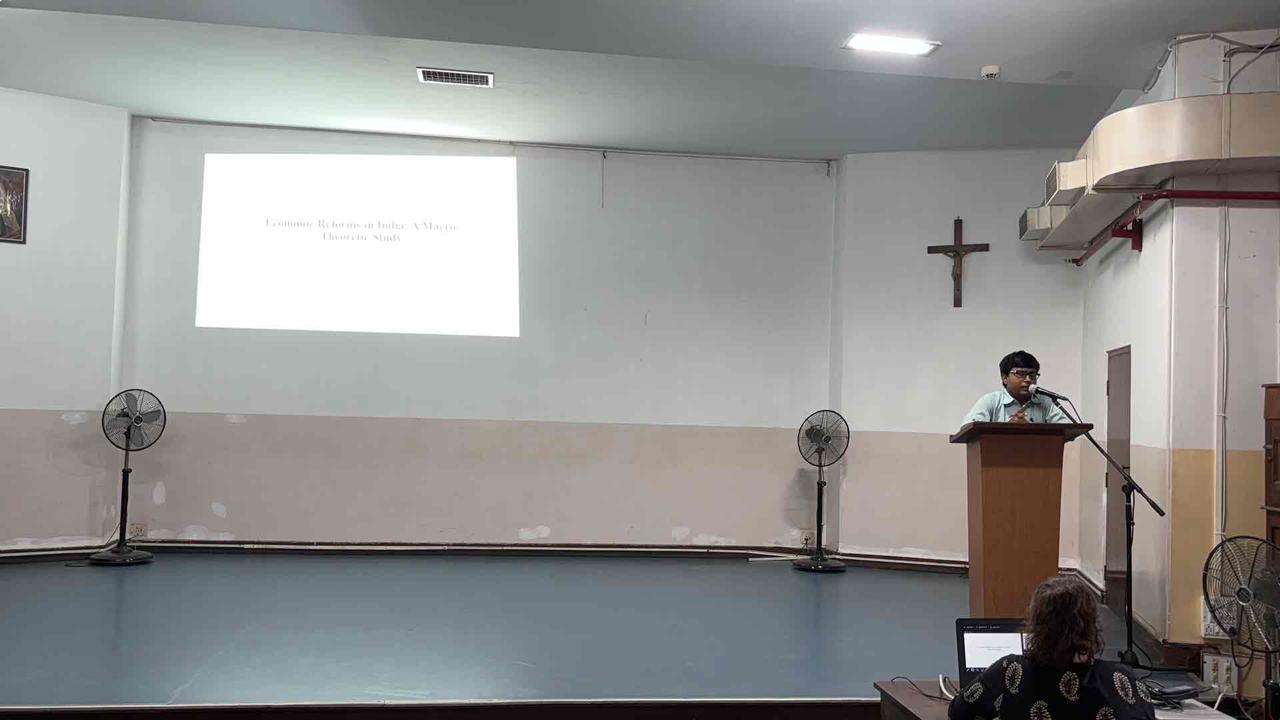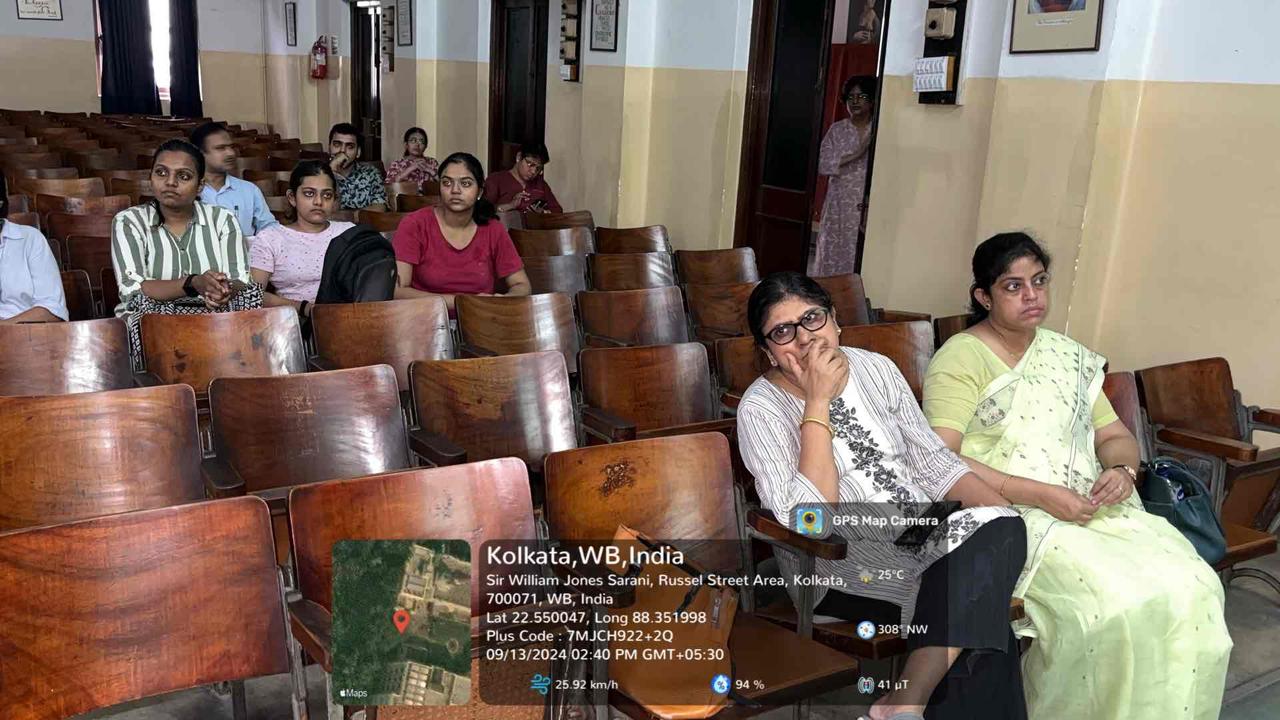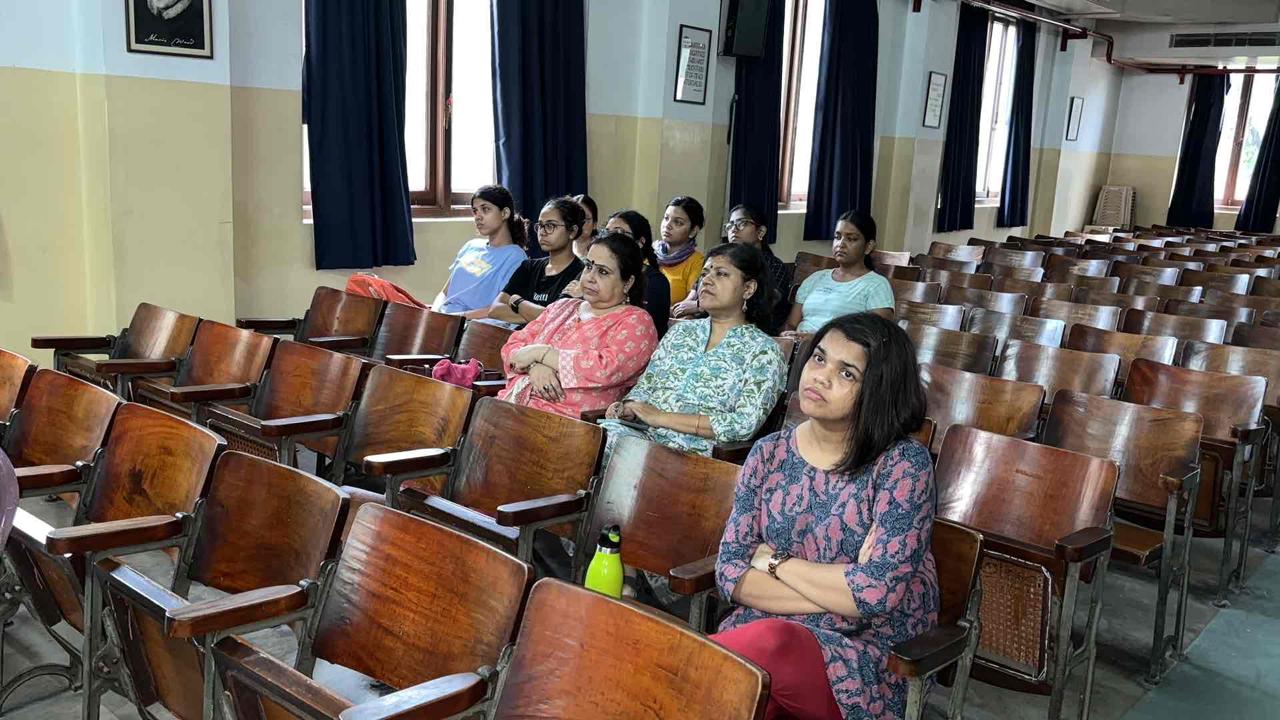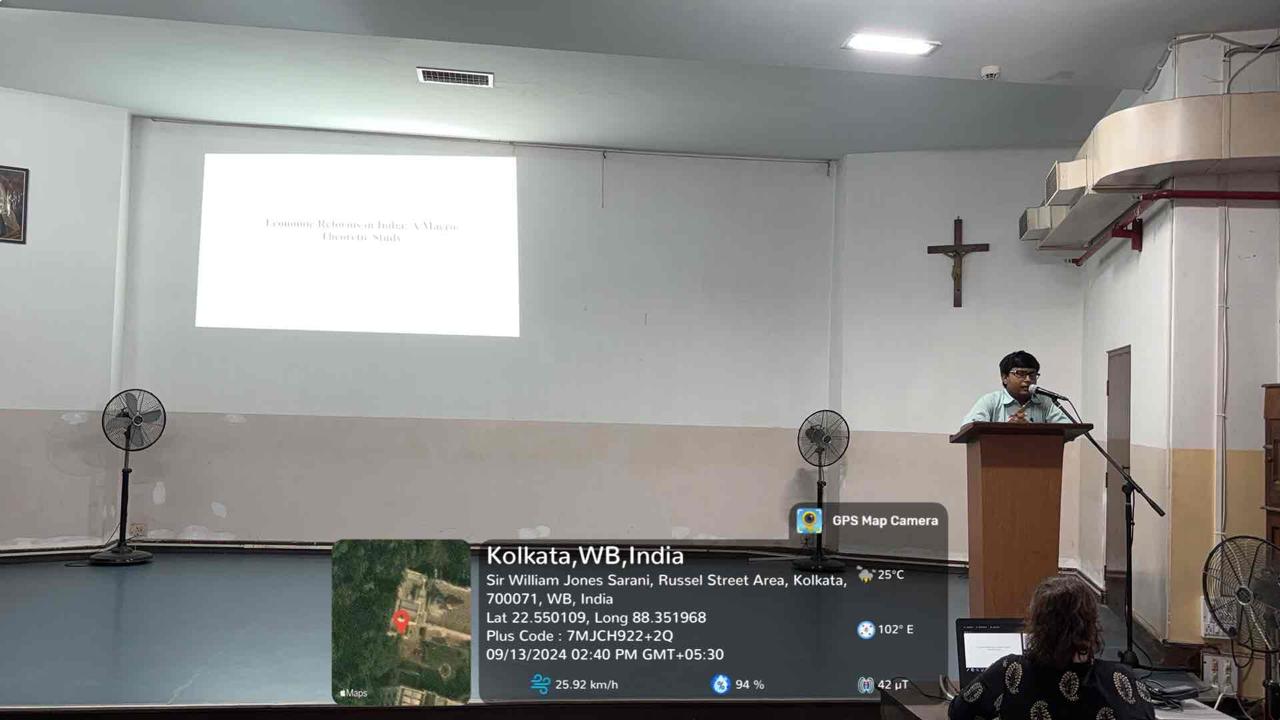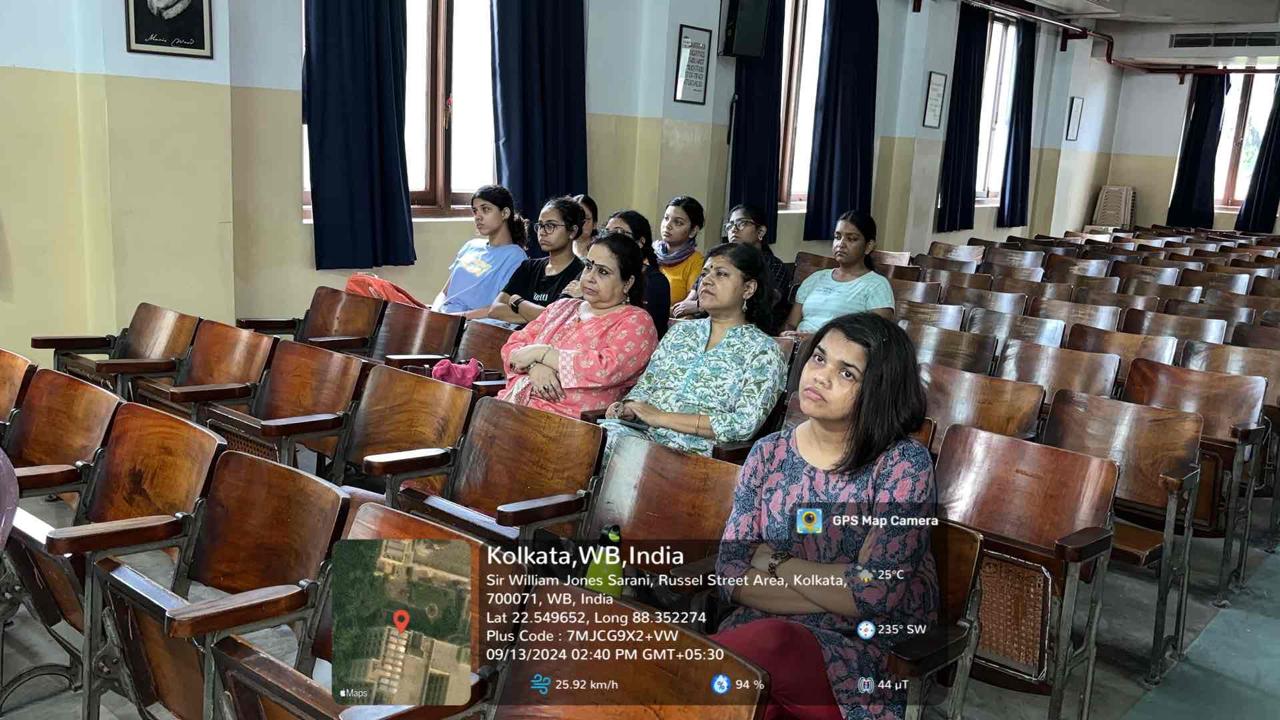Research Cell Faculty Paper Presentation
On September 13, 2024, Dr. Mainak Bhattacharjee presented part of his doctoral thesis, Economic Reforms in India: A Macro-theoretic Study. The paper presented delved into the macroeconomic implications of economic reforms in India. It was based on the hypothesis that a capitalist economy is completely under the control of the capitalists, who dictate all the policies and regulate all macroeconomic phenomena such as growth rate, rate of inflation, and employment. This is in sharp contrast with the position of mainstream macroeconomics (comprising neoclassical macroeconomics and Keynesian macroeconomics), which assumes that a capitalist economy does not have a driver other than impersonal market forces.
Post-independence, India adopted the Soviet model of planned economic development. It modified the strategy and drew up the Nehru-Mahalanobis Strategy of economic development with the objective of establishing socialism. The government nationalised natural resources and financial institutions and played the primary role in developing industry, agriculture, and the financial sector of India. The capitalists were not allowed to invest in most sectors, and all the prices and interest rates were under the control of the government. Through a system of licensing, the government regulated production, investment, import, and export of the private sector. On the basis of the support received from the Soviet Union, India could adopt and carry on with this strategy of socialist development.
However, with the weakening of the Soviet Union since the mid-eighties, the Western capitalists finally succeeded in forcing India to give up the Nehru-Mahalanobis Programme and adopt the NEP in its place in 1991. The objective of the NEP was to remove all kinds of government restrictions and regulations on economic activities of the capitalists, to sell off all government enterprises and natural resources to the capitalists, and to do away with all restrictions on cross-border trade of goods, services, and capital. In other words, the objective of the NEP was to hand over India to the capitalists so that they could run and manage India the way they wanted to. The NEP is being implemented through a series of economic reforms. Dr. Bhattacharjee’s paper shed light on how the process of economic reforms is benefiting the capitalists and causing immense misery and suffering to the masses.
The presentation was attended by the students of the Department of Economics, the members of the Research Cell, and faculty members of Loreto College. It was an enriching experience for all attendees.
